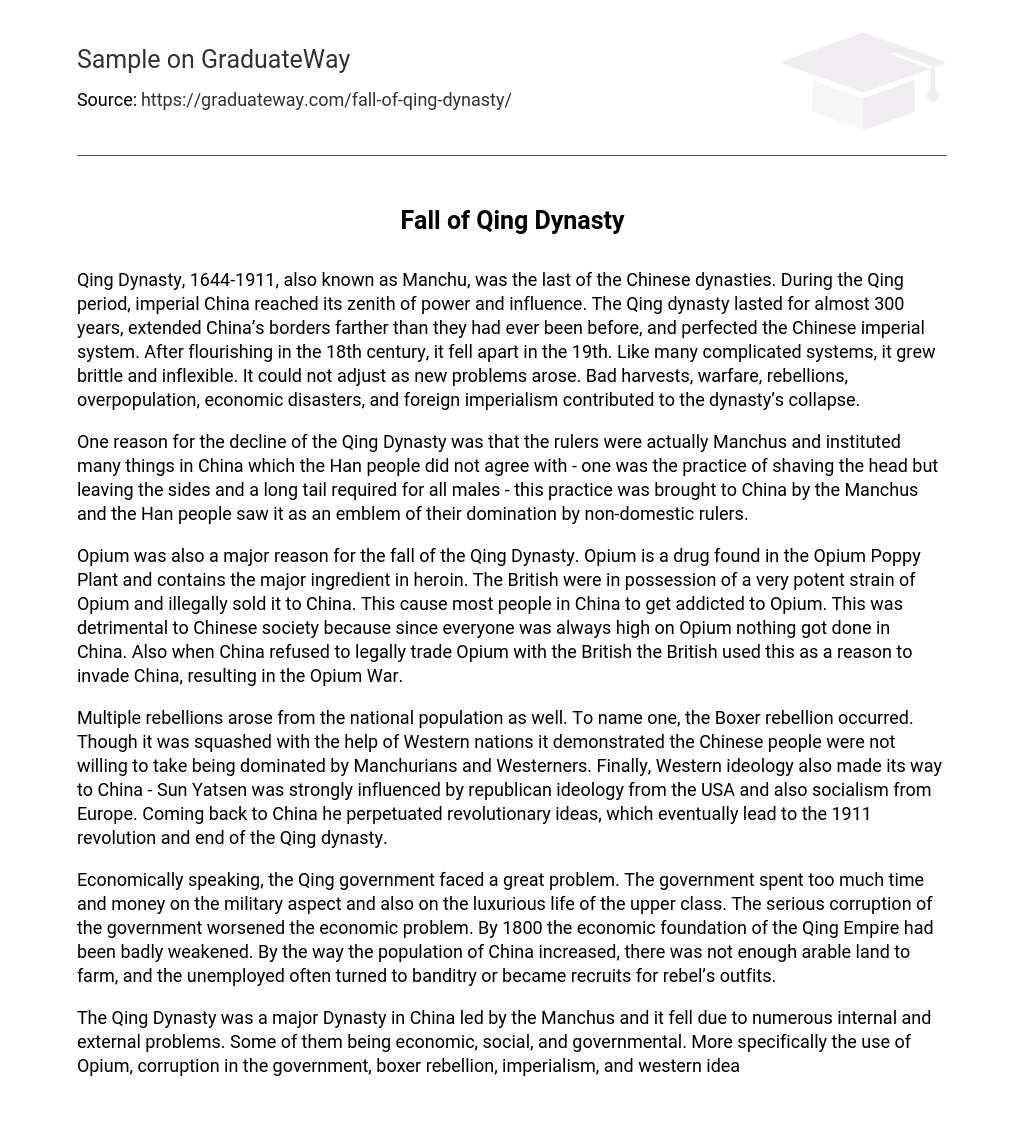The Qing Dynasty, also called Manchu, was the last Chinese dynasty ruling from 1644-1911. During this nearly 300-year period, China witnessed a pinnacle of power and influence. The Qing dynasty not only enlarged China’s territories but also refined its imperial system. Nevertheless, in the 19th century, a multitude of factors including crop failures, conflicts, uprisings, population surges, economic calamities along with foreign domination weakened the dynasty. These difficulties overwhelmed the system and eventually caused its downfall.
The Qing Dynasty declined due to the disagreement between the ruling Manchus and the Han people of China. The Manchus implemented practices, like shaving the head and leaving a long tail on males, that were interpreted by the Han people as a symbol of foreign domination.
The fall of the Qing Dynasty can also be attributed to Opium, a drug derived from the Opium Poppy Plant that contains the key component of heroin. The British possessed a highly potent variety of Opium and illicitly distributed it in China, causing widespread addiction. This had a negative impact on Chinese society as the majority of individuals were constantly under the influence of Opium, hindering productivity in the country. Additionally, when China rejected the legal trade of Opium with Britain, it provided justification for the British invasion known as the Opium War.
Multiple rebellions emerged from the Chinese population, including the Boxer rebellion. While Western nations aided in suppressing this revolt, it showcased the Chinese people’s resistance to both Manchurian and Western domination. Additionally, Western ideology infiltrated China, as Sun Yatsen drew inspiration from American republican ideology and European socialism. Upon returning to China, he disseminated revolutionary concepts that ultimately led to the 1911 revolution and the downfall of the Qing dynasty.
The Qing government faced a significant economic challenge due to excessive spending on the military and the extravagant lifestyles of the upper class. The rampant corruption within the government further exacerbated this economic issue. As a result, by 1800, the economic foundation of the Qing Empire had significantly deteriorated. Compounding this problem was the population growth in China, which further strained the limited arable land available for farming. Consequently, many unemployed individuals resorted to banditry or joined rebel groups.
The fall of the Qing Dynasty in China, led by the Manchus, was primarily the result of various internal and external problems. These problems consisted of economic, social, and governmental issues. Some specific factors include the use of Opium, government corruption, the Boxer Rebellion, imperialism, and the influence of western ideas.





